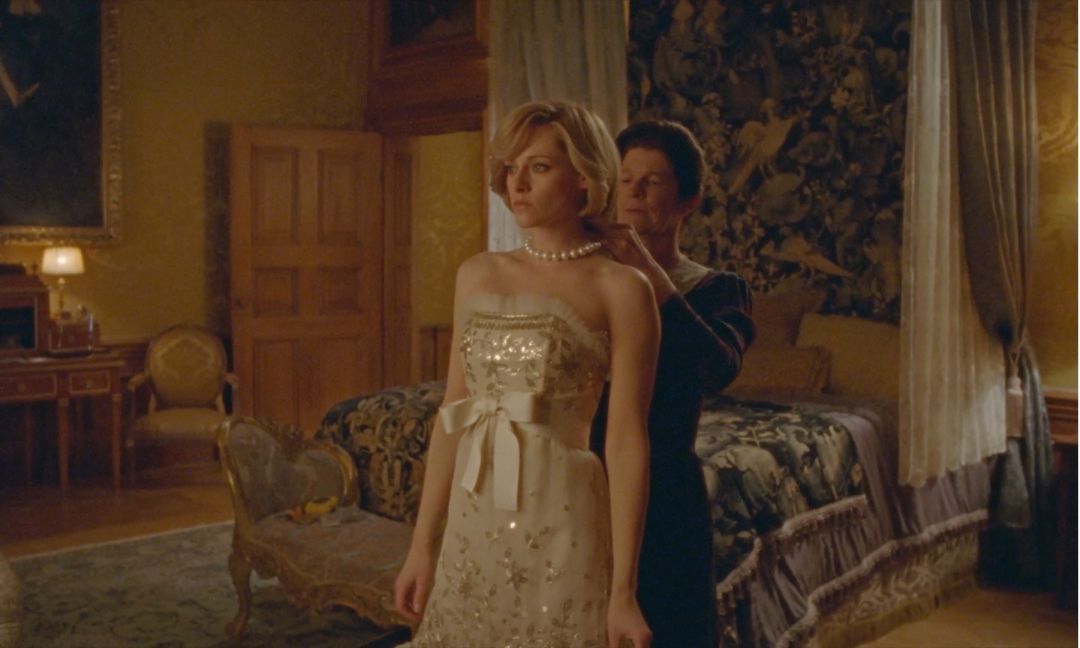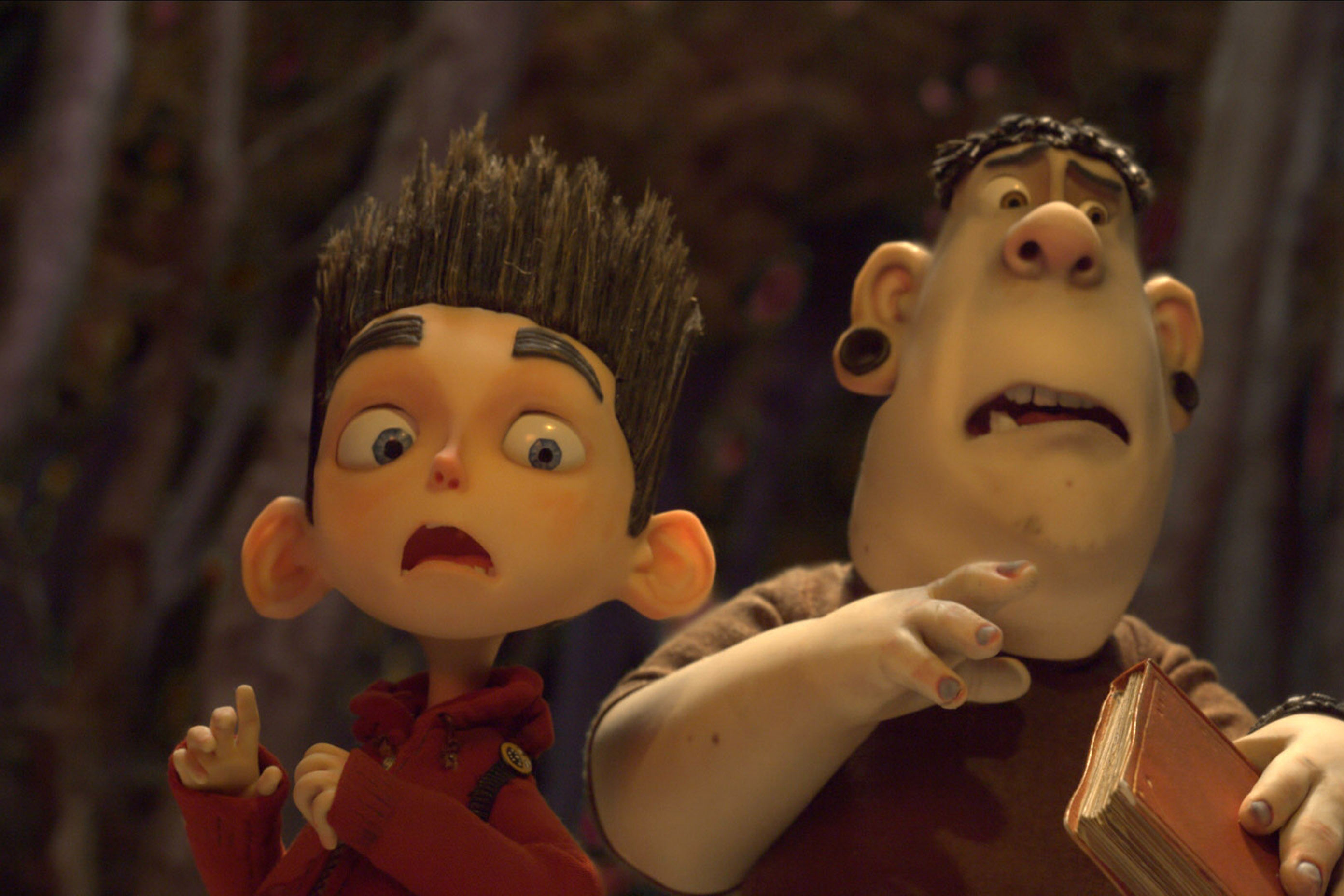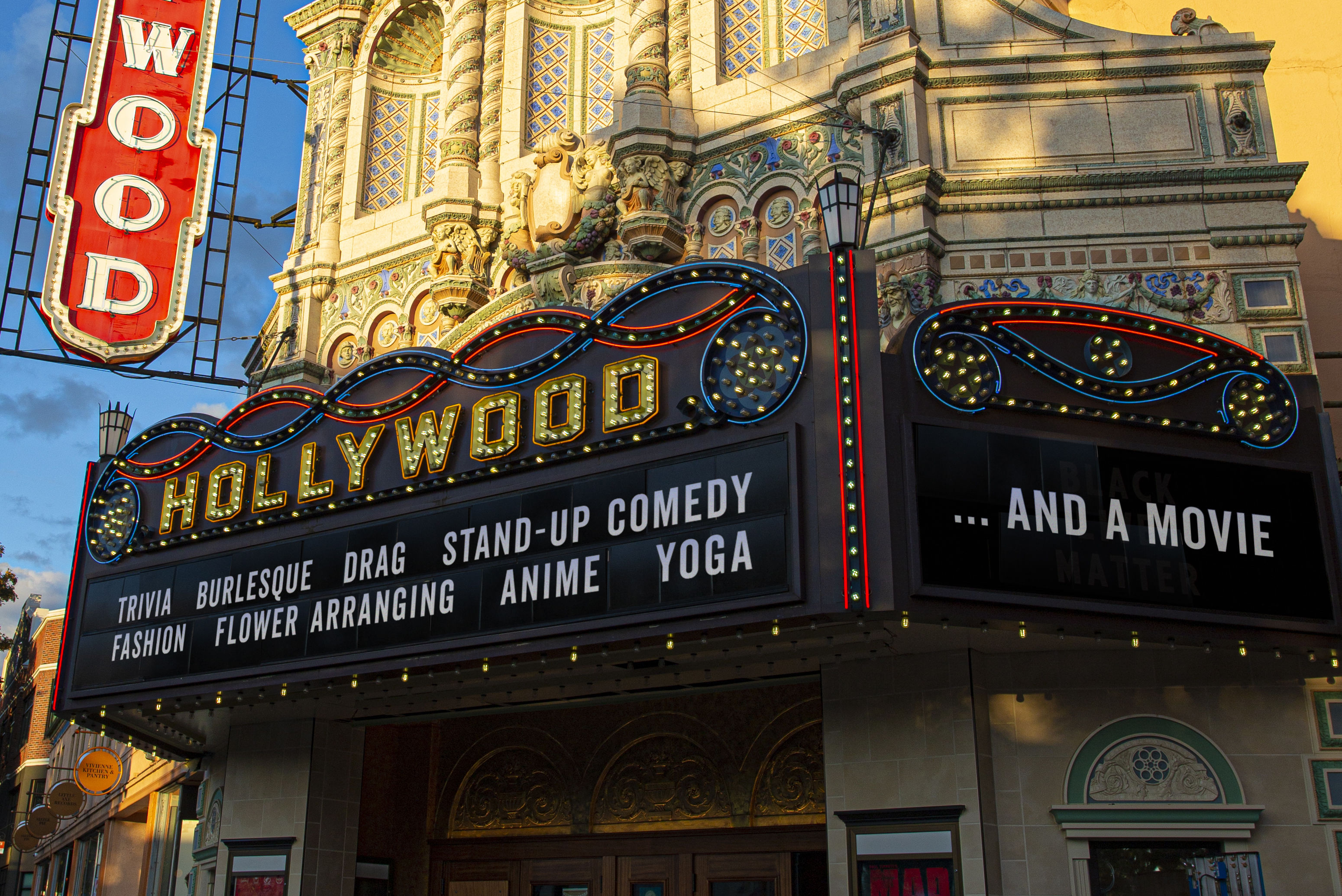Every Movie Should Be Like Spencer

Kristen Stewart as Princess Diana in Spencer
Image: Courtesy Neon
It’s not hard to make me roll my eyes. A blunt metaphor, a misplaced hyperbole, most tweets: all surefire ways to drive my pupils to the back of my skull. So why, then, do I love Spencer so much?
Pablo Larraín’s self-described “fable from a true tragedy” about Diana, Princess of Wales, drips with potential eyeroll-fuel. Throughout, the Lady (played by a mesmerizing Kristen Stewart) regularly compares herself to sport-hunted pheasants. Each of her dresses are labeled “POW,” for “Princess of Wales,” or … yeah, that. The ghost of Anne Boleyn turns up in a scene where Diana munches on whole pearls.
Nevertheless, all the fevered silliness amounts to something more substantial than, say, the mawkish Lady Gaga piano ballad about the People's Princess. A trillion Sontag scholars can argue for the next few decades whether Spencer counts as camp, but for me, it’s a delirious cocktail of opera, horror, and Warholian sketch comedy. It knowingly presents blunt metaphors, accompanies them with screeching strings, films it all in stunning soft-focus 16 mm, and sweeps you away completely to its own absurd, intoxicating wavelength. It is without hesitation my favorite movie of 2021 so far.
WHEN Larraín first announced last year that he would make a Diana film starring a Twilight alum, the world cocked an eyebrow—and even I, a rabid fan of his Jackie, wasn’t sure what to think. For one, we were already drowning in Diana content: The Crown had just wrapped its big Lady Di season and a biographical Broadway musical was waiting in the wings for COVID restrictions to lift. For another, Stewart’s casting felt loaded: was this a heavy-handed shot at comparing her tabloid troubles to those of a woman who died in a blaze of flashbulbs?
Luckily, Spencer couldn’t be less concerned with biographical detail, and Stewart's performance never winks to her stint in the gossip rags. The film is set over a single Christmas weekend at Sandringham House, the coastal English estate where the royal family often holidays. In case we're unsure what kind of movie we're watching, we are immediately treated to a shot of the house's kitchen, presided over by an enormous sign that reads “KEEP NOISE TO A MINIMUM. THEY CAN HEAR YOU.”
Moments later, we meet Diana in her sports car, fumbling with a map. “Where the fuck am I?” she says to no one. Then she wanders into a cafe that glows with Christmas decor, bats her eyes, and shyly admits, "I have no idea where I am." Already, we see Diana, The Foulmouthed rubbing against Diana, the People's Princess; Stewart's (and the film's) portrait only deepens from there.
At its core, Spencer is a rigorously subjective film about the agony of not fitting in. It wrestles one of our most towering pop icons to human size without losing sight of her symbolic heft, and then it situates her in a fable about making a choice, wishing you hadn't, and growing physically incapable of withstanding the fallout. It's not so much a critique of the monarchy (though I can't imagine Liz and Charles will sing its praises anytime soon) as an uncompromising look at what such a stringent institution does to the psychology of someone who didn't realize they'd given it their freedom. It would make for an equally strong double bill with Marie Antoinette, The Shining, or Rebecca.
Throughout, Diana obsesses over a scarecrow she built as a child and decorated with one of her father's coats. It scans as more than a bit strange until you realize it's one of the only moments in her life she's been allowed to make something new. "In this house, there is no future," she tells her young sons early on, "and the past and present are the same thing." Harry and William are her other great creative act: Stewart's twitchy discomfort melts away in their scenes together, and the force of her maternal affection bowls you over all the more for its contrast to the anxiety she exudes in every other corner of her life.
Stewart has always been a Face Actor of the highest order, but she levels up here in ways we could never have imagined 10 years ago. Larraín harnesses her inherent lean-in magnetism to show us an electric woman whose light is being actively muddled (until, in fits, it's allowed to shine). She's a funny person in a humorless castle, a mischievous everywoman being haunted into submission by a thousand years of tradition. Stewart lives that tension and tragedy in her body, and then unwinds it when she comes gushing to life in scenes with her sons or her dresser (a delightful Sally Hawkins). Awards do not matter, but if anybody else wins the Oscar, I will set myself on fire.
AGREAT performance does not a movie make, however (just ask Judy or The Eyes of Tammy Faye or *unrolls scroll of every Best Actor winner from the last 20 years*), and Spencer succeeds on the strength of Larraín and his collaborators. Claire Mathon's ghostly cinematography situates us squarely in "twisted fairy tale" territory. Jonny Greenwood's insistent, overwhelming score draws out the discordance in Diana's mind. Knight's script, on the nose as it can be, makes a number of shrewd choices—the queen and Charles, for instance, are not so much cartoon villains as employees of the crown willing to sacrifice their individuality to its demands.
And Larraín masterfully orchestrates it all, balancing the film's unwieldy tones and sewing together its threads with breathtaking aesthetic confidence. He's made a dead-serious comedy of manners and a hilarious gothic tragedy that reminded me what it's like to fall in love, full speed ahead, with a movie.
For a particular kind of viewer, Spencer might be the eyeroll of the year. For me, it's a royal triumph.




